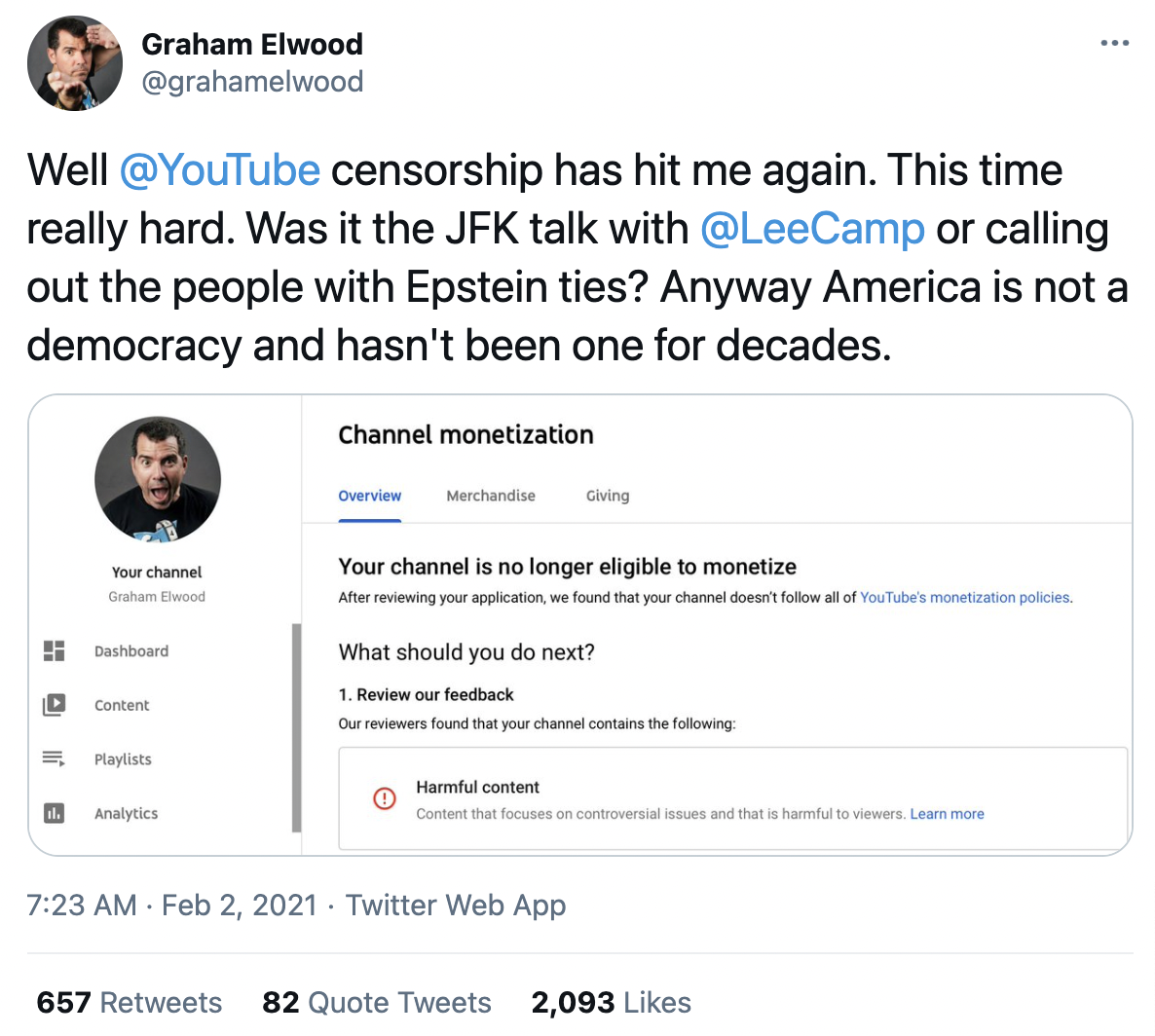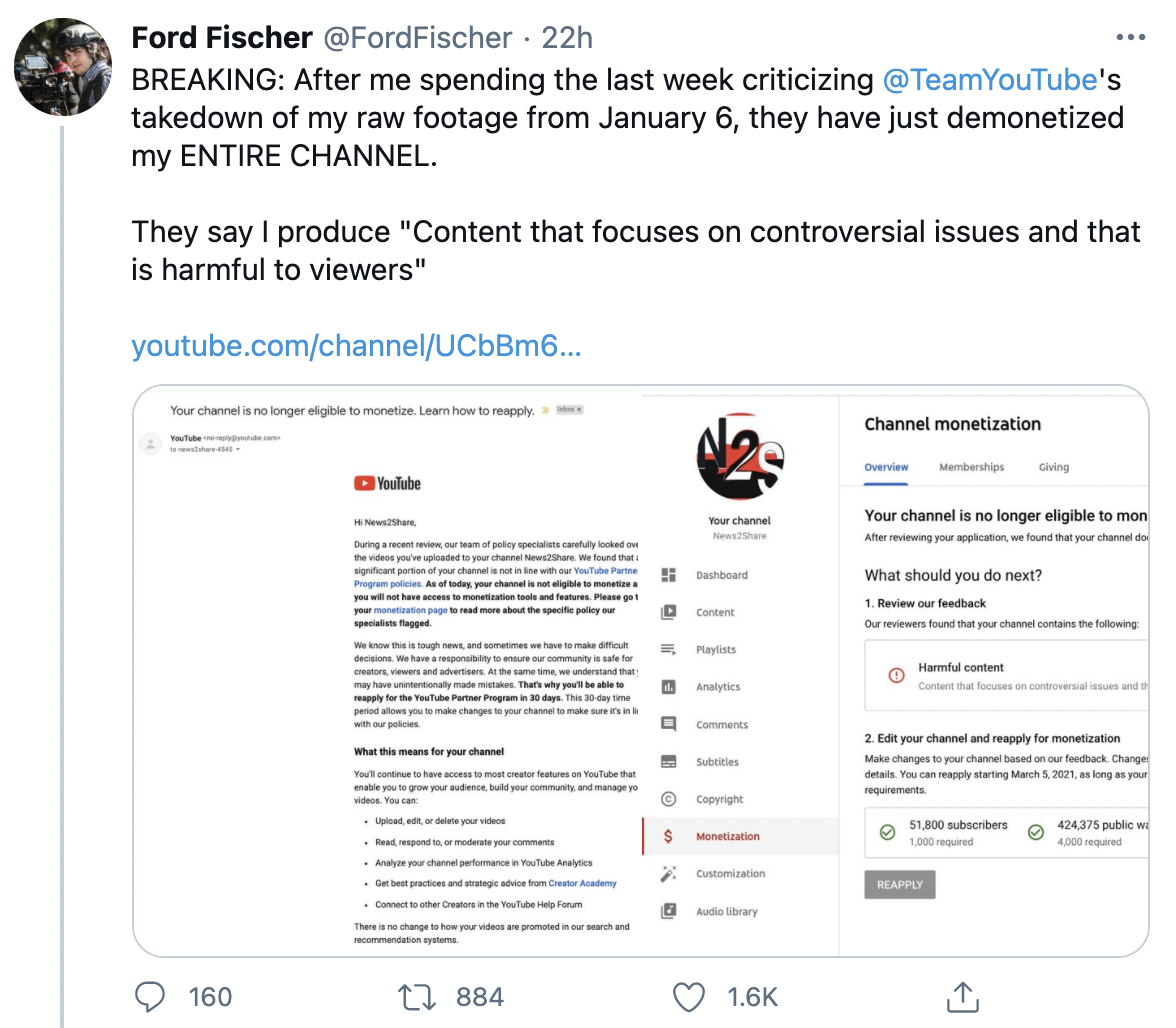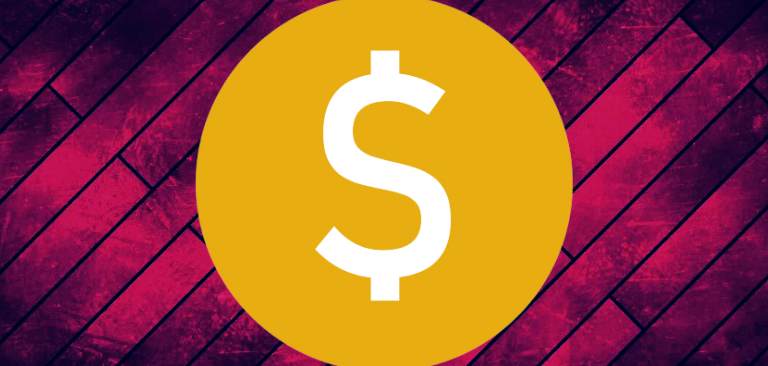YouTube’s by-now-notorious takedown and demonetization systems are continuing to pick up speed, but also attract more attention as their harmful consequences expand to affect more and more independent creators on Google’s globally-dominant video platform.
The latests batch of demonetized channels aren’t the usual targets of conservative commentators but range from journalists to progressive figures.
Graham Elwood, The Progressive Soapbox, The Convo Couch, Franc Analysis, Hannah Reloaded, Cyberdemon531, and Ford Fischer are amongst the latest in YouTube’s demonetization purge.
They are facing the same problems faced by others before them, including many who had no obvious political affiliation, and the thing they have in common is that they are not big enough for YouTube to treat them with respect.
Respect here would mean proper transparency around such serious issues that often threaten creators’ livelihoods, explaining why exactly their channels had been demonetized, and providing a way to communicate with the company that goes beyond bot-generated generic messages about violations of nebulous community or partner policies.
Graham Elwood vented his frustration on Twitter, saying that he was stripped of ad revenue, super chats, and YouTube premium money – and that he would consult with his lawyer on how to proceed.
“Well YouTube censorship has hit me again. This time really hard. Was it the JFK talk with LeeCamp or calling out the people with Epstein ties? Anyway America is not a democracy and hasn’t been one for decades,” he said in a tweet.

Fischer, who recently had a video removed with no logical explanation – given its content, and the allegedly violated policy that YouTube cited – and was trying for days to get to the bottom of it, revealed on Twitter recently that this was not the first time he has had to deal with Google/YouTube’s lack of support, and the impenetrable wall of algorithms pretending to be one.
On a previous occasion, Fischer shared, his channel was demonetized for seven months before somebody at YouTube finally paid attention and realized this was done in error.

Most of the messages received by these creators now cite “harmful” or “controversial” content in one way or another (it goes without saying, without clarifying what this content was or in which video it was found), and that was the case with the Convo Couch channel, too.
A post on Substack from Caitlin Johnstone details these cases and more, declaring financial deplatforming of independent media to be a form of censorship.
“If the democratization of information online is successfully reversed and the mass media gatekeepers are again the sole authorities on what’s real and true, people will be locked into forming their ideas on how to think, act and vote based on what they are told by the same plutocratic media institutions which have been deceiving them into every war and manipulating them into accepting the status quo for generations,” Johnstone warns.








